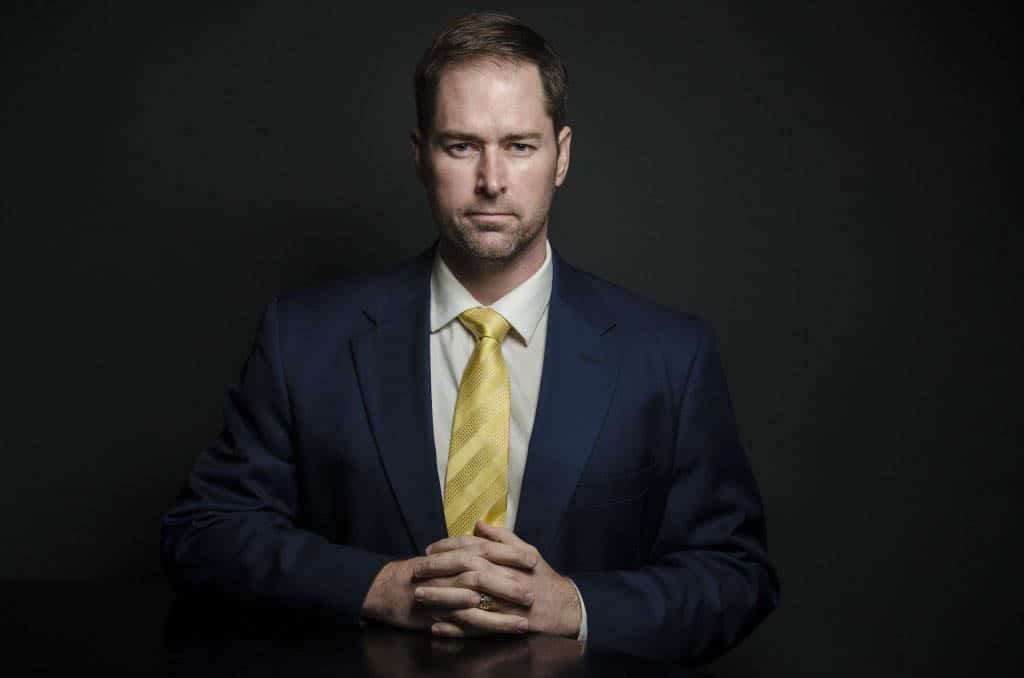Chapter 11 Bankruptcy Lawyers - Nick Davis Law
ALTERNATIVES TO BankruptcyNick Davis Law helps individuals and businesses explore effective alternatives to bankruptcy, offering customized solutions for debt relief.
Serving Montgomery, Harris, Fort Bend, Brazos, Grimes, Waller, Walker & Surrounding Counties
Alternatives to Bankruptcy: Explore Your Options for Financial Relief in The Woodlands, Katy, Houston, College Station, Texas

When financial troubles arise, bankruptcy may seem like the only option—but it’s not. Many individuals and businesses have alternatives available that can help resolve debt without resorting to filing for bankruptcy. At Nick Davis Law, we guide you through options like debt negotiation, consolidation, and workouts. Our goal is to protect your financial interests while avoiding the long-term consequences of bankruptcy.
Don’t wait until it’s too late to act. Contact Nick Davis Law Bankruptcy Relief Lawyers today for a free consultation at (936) 262-7474 and assistance in filing for Bankruptcy in The Woodlands, Houston, Katy, and College Station.
Debt Negotiation and Settlement: Resolving Debt Without Bankruptcy
Debt negotiation offers an opportunity to settle your obligations on favorable terms, allowing you to avoid the long-term effects of bankruptcy.”
Debt negotiation involves working directly with creditors to settle your debts for less than what you owe, without filing for bankruptcy. In many cases, creditors are willing to accept a reduced lump-sum payment to avoid the uncertainty of a bankruptcy case.
How Debt Settlement Works:
Debt settlement is a straightforward process, but it’s essential to approach it with a sound strategy. By working with a legal team at Nick Davis Law, we can negotiate directly with your creditors on your behalf. We aim to lower the total debt, reach a favorable settlement, and ensure you’re able to protect your assets.
The Benefits of Debt Settlement:
Settling your debt allows you to:
- Avoid the legal implications and credit damage associated with bankruptcy.
- Prevent further legal action from creditors.
- Protect valuable personal or business assets that could otherwise be lost.
How Nick Davis Law Can Help:
With years of experience handling complex debt negotiations, Nick Davis Law can help you navigate the settlement process and secure favorable terms. Having a trusted attorney by your side is key to achieving the best possible outcome.
Learn more about debt negotiation and settlement and how it can help you avoid bankruptcy. Considering debt settlement as an alternative to bankruptcy? Contact Nick Davis Law at (936) 262-7474 to get started.
OVERVIEW OF CHAPTER 7
COMMON QUESTIONS
CREDIT COUNSELING
341 MEETING
BENEFITS OF CHAPTER 7 BANKRUPTCY
CHAPTER 7 VS. CHAPTER 13
MEANS TEST & ELIGIBILITY FOR CHAPTER 7
FILING FOR CHAPTER 7 IN TEXAS
DEBTS DISCHARGED IN CHAPTER 7
PROTECTING ASSETS
TEXAS EXEMPTIONS
TEXAS SPECIFIC BANKRUPTCY
ROLE OF TRUSTEE
EMERGENCY BANKRUPTCY
IMPACT OF CHAPTER 7
LIFE AFTER CHAPTER 7
BANKRUPTCY LITIGATION
ADDITIONAL BANKRUPTCY AREAS
ALTERNATIVES TO BANKRUPTCY
CHAPTER 11 BANKRUPTCY
OVERVIEW OF CHAPTER 11
FILING FOR CHAPTER 11 BANKRUPTCY
CHAPTER 11 FOR BUSINESSES
CHAPTER 11 FOR INDIVIDUALS
DEVELOPING A CHAPTER 11 REORGANIZATION PLAN
DEALING WITH CREDITORS IN CHAPTER 11
MANAGING ASSETS AND OPERATIONS DURING CHAPTER 11
BANKRUPTCY LITIGATION
ADDITIONAL BANKRUPTCY PRACTICE AREAS
EXITING CHAPTER 11 BANKRUPTCY
ALTERNATIVES TO BANKRUPTCY
SPECIAL CHAPTER 11 TOPICS
Debt Consolidation vs. Bankruptcy: Pros and Cons
Debt Consolidation vs. Bankruptcy: Which is Right for You?
Understand the pros and cons of debt consolidation compared to filing for bankruptcy, and find out which option better suits your financial situation.”
Debt Consolidation:
Debt consolidation involves combining multiple debts into a single payment, usually with a lower interest rate. This approach helps you streamline your debt payments but may come with drawbacks, such as extended repayment timelines or higher overall costs.
Pros:
- Simplified payments through one consolidated loan.
- Typically results in lower interest rates, saving you money in the short term.
- Protects your credit score compared to bankruptcy.
Cons:
- You may pay more over time due to the extended repayment period.
- It doesn’t eliminate debt but rather repackages it.
Bankruptcy:
Bankruptcy is a more immediate form of debt relief that can discharge or reorganize certain debts through a court-approved process. However, it comes with serious long-term effects on your credit and financial standing.
Pros:
- Provides legal protection through the automatic stay, halting lawsuits and collection efforts.
- Can result in a discharge of qualifying debts, offering a fresh start.
Cons:
- Major impact on your credit score for years to come.
- Some debts, like student loans and taxes, may not be dischargeable.
Which Option is Right for You?
Choosing between debt consolidation and bankruptcy depends on your financial situation. Debt consolidation might work for those looking to simplify payments, while bankruptcy can provide more comprehensive relief if you are overwhelmed with debt.
Get a full comparison between debt consolidation and bankruptcy to make the best decision for your financial future. Not sure whether to consolidate debt or file for bankruptcy? Call Nick Davis Law at (936) 262-7474 for personalized advice.
When Should You Consider a Debt Workout Instead of Bankruptcy?
Debt Workouts: An Alternative Solution for Restructuring Your Debt
In some cases, a debt workout may be a better solution than bankruptcy. Learn when and how a debt workout can provide long-term relief.”
What is a Debt Workout?
A debt workout is a restructuring agreement negotiated with creditors to modify the terms of your existing debt. Rather than wiping out debt, as in bankruptcy, a debt workout focuses on changing repayment schedules, reducing interest rates, or even lowering principal amounts. Debt workouts are ideal for businesses or individuals who have large amounts of debt but want to avoid the long-term consequences of bankruptcy.
When Should You Choose a Debt Workout?
Debt workouts are appropriate when you’re struggling to keep up with payments but want to preserve relationships with creditors, protect your credit rating, or avoid the stigma of bankruptcy. Debt workouts can be highly customized to meet your financial situation.
The Debt Workout Process:
We begin by assessing your current financial situation, then work with creditors to negotiate terms that give you more breathing room. Whether it’s extending payment deadlines or reducing the amount you owe, Nick Davis Law works to protect your financial interests throughout the process.
The Role of Nick Davis Law:
Having trusted, experienced legal guidance is crucial in a debt workout. Nick Davis Law will represent you in negotiations, ensuring that your best interests are protected and helping you avoid unnecessary losses.
Find out when a debt workout might be the best option for avoiding bankruptcy. Interested in restructuring your debt without bankruptcy? Contact Nick Davis Law at (936) 262-7474 to discuss your options.
FAQ
Frequently Asked Questions
How does a debt management plan (DMP) work as an alternative to bankruptcy?
A debt management plan (DMP) involves working with a credit counseling agency to negotiate lower interest rates and consolidate unsecured debts into one monthly payment. Unlike bankruptcy, a DMP does not discharge debts but provides a structured repayment plan, typically over three to five years. Creditors must agree to the plan, and if they do, it can prevent further collection actions. However, you must remain disciplined in making payments, as missed payments can result in termination of the plan. DMPs can be a good option for individuals with manageable debt and stable income.
Can I negotiate directly with creditors to avoid bankruptcy?
Yes, many creditors are willing to negotiate directly with debtors to avoid the time and expense of a bankruptcy filing. You may be able to settle for less than the full amount owed, reduce interest rates, or extend repayment terms. The key to successful negotiation is demonstrating that bankruptcy is a viable alternative, which may incentivize creditors to compromise. Working with an attorney or debt negotiation expert can help ensure you secure the most favorable terms and protect yourself from aggressive collection tactics during negotiations.
How does a forbearance agreement work as an alternative to bankruptcy?
A forbearance agreement is a temporary arrangement where creditors agree to reduce or suspend payments for a set period, allowing the debtor time to recover financially. This is often used when an individual or business faces short-term financial difficulties but expects to improve their financial situation soon. For example, during a business downturn or personal health crisis, a forbearance agreement may help avoid bankruptcy by offering breathing room to catch up on payments. However, interest typically continues to accrue, so it’s important to have a clear plan for resuming full payments once the forbearance period ends.
Can loan modification help me avoid bankruptcy?
Yes, a loan modification can be an effective alternative to bankruptcy, particularly for secured debts like mortgages or auto loans. Loan modifications involve negotiating with lenders to change the terms of a loan, such as reducing the interest rate, extending the repayment period, or lowering monthly payments. This option is especially helpful for homeowners facing foreclosure or individuals struggling with high-interest loans. Lenders are often willing to work with borrowers to avoid foreclosure or repossession, but successful modification requires proof of financial hardship and the ability to make modified payments.
How does voluntary debt restructuring differ from bankruptcy?
Voluntary debt restructuring is a private negotiation between the debtor and creditors to adjust the terms of repayment. This often involves extending the repayment period, reducing interest rates, or swapping debt for equity in the case of businesses. Unlike bankruptcy, which involves court oversight and public filings, voluntary restructuring allows for greater privacy and flexibility. It can also be faster and less costly than bankruptcy. However, it requires cooperation from creditors and a clear financial recovery plan. If creditors refuse to cooperate, bankruptcy may become the only viable option.
Can asset liquidation outside of bankruptcy help avoid filing?
Yes, voluntarily liquidating non-essential assets can help pay down debts and avoid bankruptcy. By selling off assets such as real estate, vehicles, or business equipment, individuals and businesses can generate cash to pay creditors. This strategy works best when there are sufficient assets to cover debts and when liquidating those assets will not harm long-term financial stability. It’s important to carefully plan asset sales to avoid leaving yourself without essential resources, and consulting with an attorney or financial advisor can help protect you from unintentionally making matters worse.
How does debt refinancing compare to bankruptcy?
Debt refinancing involves taking out a new loan to pay off existing debt, ideally with better terms such as lower interest rates or longer repayment periods. This can provide immediate relief by consolidating multiple debts into a single, manageable payment. However, refinancing often requires good credit or collateral, and failing to make payments on a refinanced loan can lead to more severe consequences, such as foreclosure or repossession. While refinancing is less damaging to credit than bankruptcy, it’s essential to ensure the new loan improves your financial situation rather than postponing inevitable default.
Can I use business debt restructuring to avoid personal bankruptcy?
If you own a business and have both personal and business debts, restructuring your business debts through negotiation or Chapter 11 bankruptcy may help avoid filing for personal bankruptcy. By renegotiating terms with business creditors, you may be able to stabilize your business’s finances without impacting your personal credit or assets. However, if you’ve personally guaranteed business loans, you could still be liable for those debts if the business cannot meet its obligations. Working with an attorney to separate personal and business liabilities can help minimize the risk of personal financial harm.
How does a creditors’ composition agreement work as an alternative to bankruptcy?
A creditors’ composition agreement is a formal arrangement where creditors agree to accept a partial payment of the total debt in exchange for the debtor avoiding bankruptcy. This type of agreement usually requires the approval of a majority of creditors and can help reduce the overall debt burden. Creditors may prefer this option over bankruptcy because it ensures they receive at least some payment rather than risking a total loss in bankruptcy proceedings. This option works best when the debtor has some ability to repay but cannot meet the full obligations.
Can crowdfunding or community fundraising help avoid bankruptcy?
Crowdfunding or community fundraising can be a creative way to raise funds to avoid bankruptcy, particularly for businesses with a strong local presence or loyal customer base. By leveraging platforms like GoFundMe, Kickstarter, or community events, individuals or businesses can appeal for financial support to pay down debts or cover operational costs. While this method is not guaranteed, it can be successful if there’s widespread support. However, it’s important to consider the potential reputational impact and manage expectations regarding the amount that can be raised.
How can a personal loan from family or friends help avoid bankruptcy?
Borrowing from family or friends is an alternative to formal bankruptcy proceedings, allowing individuals or businesses to obtain financial assistance without high-interest rates or credit checks. While this option may help you avoid filing for bankruptcy, it can strain personal relationships if clear terms are not established. To protect both parties, it’s advisable to create a written agreement outlining the repayment schedule, interest (if any), and consequences of default. Transparency is key to preserving relationships while addressing financial challenges.
Can credit card balance transfers help avoid bankruptcy?
Using a balance transfer to consolidate credit card debt onto a card with a lower interest rate can help reduce monthly payments and avoid bankruptcy. Many credit card companies offer promotional periods with 0% interest on balance transfers, giving you time to pay off the balance without accruing additional interest. However, this option is only effective if you have a plan to pay off the debt within the promotional period. If you fail to pay down the balance before the promotional rate ends, you may face higher interest rates and deeper financial trouble.
How does working with a debt relief company compare to bankruptcy?
Debt relief companies negotiate with creditors on your behalf to reduce the total amount owed, often in exchange for a lump sum payment. While this can be a viable alternative to bankruptcy, debt relief companies charge fees, and the process can negatively impact your credit. Additionally, creditors are not obligated to agree to settlements, and you may still face collection actions. If you choose to work with a debt relief company, research their reputation and ensure you understand all fees and potential consequences.
Can hiring a financial advisor help me avoid bankruptcy?
Hiring a financial advisor can be an effective way to avoid bankruptcy by creating a tailored plan to manage debts, budget, and long-term financial health. A financial advisor can analyze your income, expenses, and liabilities to help you develop strategies for paying off debt, negotiating with creditors, and avoiding future financial pitfalls. By implementing disciplined budgeting and debt management techniques, many individuals and businesses can recover without resorting to bankruptcy. Consulting with a financial advisor early in the process can prevent further financial deterioration.
From the Blog
Recent Articles
Take Control of Your Financial Future Today
FLEXIBLE APPOINTMENTS | PAYMENT PLANS
Have more questions about Chapter 11? Contact Nick Davis Law at (936) 262-7474 for trusted answers and personalized legal advice.
At Nick Davis Law, we understand that bankruptcy is a complex and emotional process. Whether you’re an individual facing overwhelming personal debt or a business looking to restructure, we’re determined to guide you through every step. Bankruptcy is not the end—it’s the beginning of a new, more secure financial future.
Get a Free Consultation Now
Contact Nick Davis Law, serving The Woodlands, Katy, Houston, College Station and surrounding cities and counties. Take control of your financial future today—call us at (936) 262-7474. Our Montgomery, Harris, Fort Bend, Walker, Brazos, Grimes, Waller County Bankruptcy Lawyers regularly offer After-Hour & Weekend Phone and Virtual Consults and Payment Plans.
Contact us
Nick Davis Law
26418 Oak Ridge Dr.
The Woodlands, TX 77380
(936) 262-7474
The Woodlands, Texas
26418 Oak Ridge Dr.
The Woodlands, TX 77380
(936) 262-7474
Appointments Only
Bryan | College Station, Texas
750 William D. Fitch Pkwy, Ste 210
College Station, TX 778455
(979) 417-2220
Business Hours
Mon - Fri 8:00 am to 6:00 pm
Our Mission
The Trusted Family, Divorce, Bankruptcy, CPS, and Small Business Lawyers at Nick Davis Law are dedicated to providing the best and most efficient representation possible to our clients to achieve their goals quickly and cost effectively. Nick Davis Law maintain offices in The Woodlands, Katy, Texas and Bryan | College Station and serve all of Montgomery County, Brazos County, Walker County, Waller County, Grimes County, Washington County, Burleson County, San Jacinto County, Liberty County, Harris County, and surrounding counties.

 Nick Davis Law is a firm dedicated to helping individuals with all their family law needs and serves Montgomery, Harris, Waller, Grimes, Walker, Brazos, Washington, Burleson, Fort Bend and surrounding counties.
Nick Davis Law is a firm dedicated to helping individuals with all their family law needs and serves Montgomery, Harris, Waller, Grimes, Walker, Brazos, Washington, Burleson, Fort Bend and surrounding counties. 
